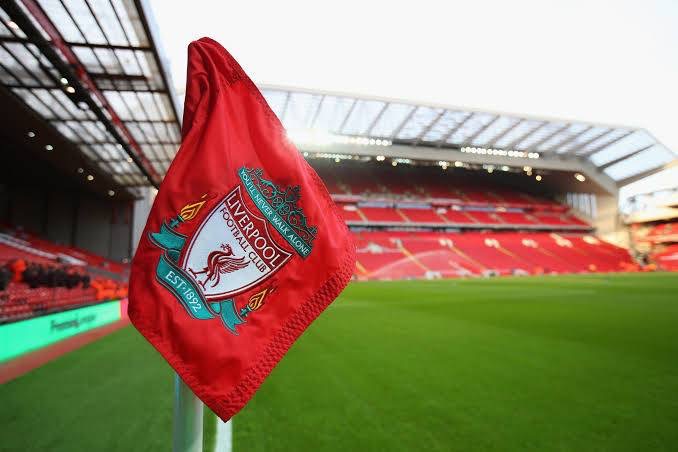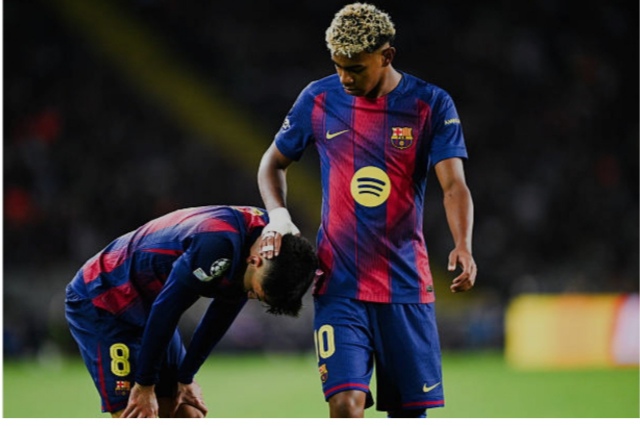Transfer windows often create stories that mix ambition, rivalry, and outright refusal to compromise. Behind the headlines of blockbuster signings are countless negotiations, offers, and rejections that never see the light of day. One such story has now surfaced, shedding light on how close Liverpool and Manchester City came to a sensational player swap — and why it collapsed before it could even take shape.
According to journalist Chris Bascombe of The Telegraph, Liverpool were made aware last summer that their star winger Luis Díaz was open to a move to Manchester City. Rather than resist the idea outright, Liverpool’s recruitment department floated a bold counter-proposal: a swap deal involving City’s Argentine forward Julián Álvarez. What followed was a short but telling exchange between two of English football’s fiercest rivals — one that reveals just how far both clubs are willing to go to protect their interests.
The First Signs of Discontent
Luis Díaz has been a central figure at Anfield since joining from Porto, dazzling supporters with his pace, trickery, and ability to change games in a flash. However, as Bascombe revealed, murmurs emerged last summer that Díaz was intrigued by the idea of joining Pep Guardiola’s Manchester City. For a player of his caliber, the lure of playing under Guardiola in a side that dominates possession and competes for every trophy is understandable.
Liverpool, meanwhile, were undergoing a transitional phase. With Jürgen Klopp preparing for his final seasons and the squad entering a rebuilding period, the temptation for certain players to consider alternative paths was natural. Díaz’s openness to City was never framed as a formal transfer request, but it was enough for Liverpool to take notice and prepare a response.
Liverpool’s Bold Counter-Proposal
In modern football, swap deals are rare. They require perfect alignment between clubs, players, agents, and valuations. Yet, Liverpool’s recruitment team saw an opportunity. If City wanted Díaz, then perhaps they could be persuaded to part with Julián Álvarez — the World Cup-winning striker who had, at times, played a supporting role to Erling Haaland at the Etihad.
The idea was straightforward: exchange Díaz for Álvarez, a deal that would provide both clubs with something they could use. City would add another elite winger to Guardiola’s arsenal, while Liverpool would secure a clinical forward to spearhead their attack during a rebuilding period.
But if the idea seemed intriguing on paper, City’s response made their stance clear.
“We Don’t Sell to Rivals”
According to Bascombe, Manchester City quickly shut down Liverpool’s suggestion with a firm reply: “We don’t sell to rivals.” For City, the idea of strengthening Liverpool — a team that had been their fiercest challenger for Premier League dominance under Klopp — was unthinkable.
Liverpool’s counter-response was equally sharp: “Neither do we then.” It was a message that they, too, had no intention of handing a key player to a direct competitor, even if a swap might have made some sense on paper.
What might have been one of the most sensational deals in Premier League history was over almost as soon as it began. The rivalry between the two clubs had once again proven too great a barrier for compromise.
What Happened Next
In the aftermath of this collapsed idea, the two clubs went in different directions. Julián Álvarez, despite being admired by many in the Premier League, eventually secured a move away from Manchester City — not to Liverpool, but to Atlético Madrid. City’s insistence on avoiding direct sales to rivals meant that if Álvarez were to leave, it would have to be abroad.
As for Díaz, he remained at Anfield. Despite his initial interest in City, the Colombian winger stayed put, continuing to play a vital role for Liverpool in both domestic and European competitions. His ability to produce moments of magic, combined with his strong connection to the fanbase, ensured he remained a central figure in the Reds’ plans.
Liverpool, meanwhile, made only one significant addition in that window: Federico Chiesa, signed from Juventus for £10 million. It was a move that brought in quality without breaking the bank, reflecting the club’s careful financial management and focus on finding value in the market.
Why the Deal Collapsed So Quickly
At first glance, a Díaz–Álvarez swap may seem reasonable, even exciting. Yet the speed with which it was dismissed highlights just how much pride and rivalry dictate transfer dealings in the Premier League. For City, selling to Liverpool would have been unthinkable. For Liverpool, the idea of being seen as “handing over” one of their most electric attackers to Guardiola was equally unpalatable.
The rivalry between these two clubs has defined English football for much of the last decade. Between Klopp and Guardiola, Liverpool and City have pushed each other to new heights. Every title race, every head-to-head clash has reinforced the idea that these are not just competitors — they are adversaries who cannot afford to show weakness. To trade players directly would have blurred those lines, something neither side was willing to risk.
Fan Reactions
When news of this failed proposal surfaced, reactions among fans were mixed. Some Liverpool supporters were shocked that Díaz might have considered City at all, given his status as a fan favourite at Anfield. Others admitted that a player of his ambition might naturally be tempted by Guardiola’s City, who have won multiple titles and the Champions League in recent years.
On the flip side, some fans expressed frustration that Liverpool missed the chance to land Álvarez, a young striker with immense potential and a proven record on the world stage. They wondered if the club’s strict refusal to deal with rivals had cost them a transformative signing.
Yet, for most supporters, the story reinforced the pride they feel in their club’s stance. Liverpool would not bow to City’s interest, and they certainly would not allow themselves to be weakened in the process.
Conclusion: A Rivalry That Shapes the Market
The story of Luis Díaz and Julián Álvarez is more than a failed swap deal — it is a snapshot of the rivalry that has defined English football over the last decade. Two clubs at the very top, unwilling to cede an inch, not even in the transfer market.
For Liverpool, keeping Díaz ensured continuity, while the arrival of Chiesa provided fresh energy. For City, Álvarez’s departure abroad showed their determination to control the narrative of their player sales.




